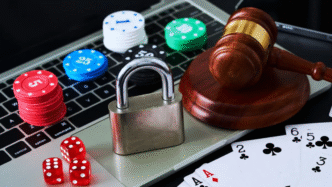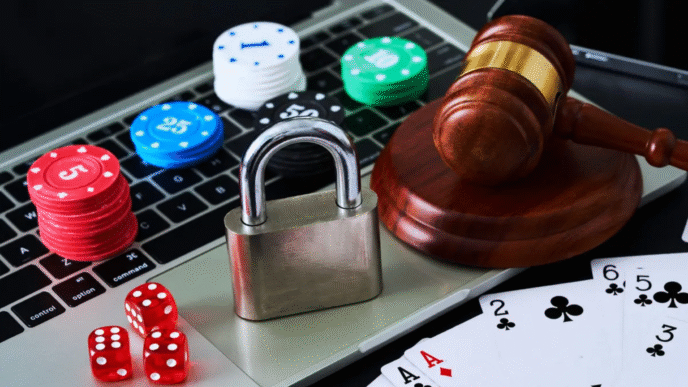Online poker stands out as a fun and beginner-friendly game anyone can enjoy. Anyone can join the fun with a device and a good connection. But knowing how to play online poker effectively requires more than just luck. It takes strategy, patience, and a strong understanding of the basics.
This guide will walk you through the core steps, rules, and tips you need to get started. Whether you’re aiming to play casually or climb the ranks, these insights will help you build a solid foundation.
What Is Online Poker?
Online poker brings the classic poker game to your screen. Players from around the world sit at virtual tables and compete in real time. You use software to place bets, make moves, and read your opponents.
Most games follow the same rules as Texas Hold’em, which is the most popular poker variation online. The game plays out in betting rounds and ends when a player wins with the best hand or everyone else folds.
The ease of playing without leaving your house is a huge plus. You can choose to play for fun or real money, based on what suits you best. Getting Started with Online Poker
To learn how to play online poker, the first step is picking a trusted platform. Choose a licensed poker site with a clean interface, fair play policy, and secure payment options.
Once you register, you’ll need to create a username and deposit funds if you want to play with real money. Luckily, beginners can use free or practice games offered by most platforms.
Before jumping into games, take some time to explore the lobby. Learn how to filter tables by game type, stake level, and number of players.
Understanding the Basic Rules
In Texas Hold’em, every player gets two cards that only they can see. These are called hole cards. Then five community cards are placed face up on the table during three stages: the flop, the turn, and the river.
Players use any combination of five cards from the community cards and their hole cards to make the best poker hand. The goal is to either create the strongest hand or get others to fold.
There are four betting rounds where players can bet, call, raise, or fold. At the end of the hand, the best combination wins the pot.
Poker Hand Rankings to Know
Knowing which hands beat others is key when learning how to play online poker. Here’s a quick breakdown of hand strength, from highest to lowest:
- Royal Flush – A, K, Q, J, 10 of the same suit
- Straight Flush – Five cards in a row, same suit
- Four of a Kind – Four cards of the same rank
- Full House – Three of a kind plus a pair
- Flush – Any five cards of the same suit
- Straight – Five cards in a row, any suit
- Three of a Kind – Three cards of the same rank
- Two Pair – Two sets of pairs
- One Pair – Two cards of the same rank
- High Card – The highest single card if no other hand forms
Learn the Importance of Table Position
Position plays a huge role in poker strategy. Your spot at the table impacts the info you get before deciding.
Players who act last, especially those “on the button,” have the advantage. They get to see how others play before making their own decision. Early position players should be more cautious since they act first and have the least information.
Good players always adjust their strategy based on where they sit at the table. It’s an often-overlooked factor that can really boost your game.
Start with Strong Hands Only
Many new players mistakenly think they should play all hands. This leads to quick losses. Instead, focus on playing strong starting hands.
Good hands include high pairs like Aces or Kings, suited connectors like 9-10 of hearts, and big face cards. If your hand is weak, it’s okay to fold. Playing fewer hands actually improves your long-term chances.
Learning how to play online poker well means understanding that folding is part of the game.
Betting Smart: Don’t Just Call
A common beginner move is to call too often and avoid raising. But passive play can hurt your game. When you have a strong hand, bet or raise to build the pot and apply pressure.
Bluffing is also part of poker, but use it wisely. Bluffing works best when it tells a believable story. Don’t bluff just for the sake of it. Watch your opponents’ habits and choose your moments carefully.
If you’re unsure, it’s usually better to fold than to call blindly.
Avoid These Common Mistakes
Understanding how to play online poker also means avoiding simple errors. Here are a few things to watch out for:
– Chasing losses: Don’t throw more money at a hand you’re likely to lose.
– Playing too long: Fatigue leads to bad decisions. Take breaks often.
– Ignoring position: Where you sit matters more than you think.
– Not watching others: Observe betting patterns to guess hand strength.
Good habits will protect your bankroll and help you grow as a player.
Manage Your Bankroll Wisely
Good bankroll control is crucial if you want to play poker long-term. Only use money you can afford to lose. Never play with rent or bill money.
Decide your session limits ahead of time and follow them strictly. Don’t chase losses by jumping into higher-stakes games. It’s smart to hold at least 20–30 buy-ins for the level you play.
Proper bankroll control keeps you in the game longer and reduces emotional stress.
Free Games vs Real Money Play
Free games help you learn the rules and build confidence. But players often make unrealistic moves because there’s nothing at stake. This can lead to bad habits.
Once you feel ready, start with low-stakes real money games. These games are slower and more competitive. They’ll help you develop a serious playing style.
As you improve and your bankroll grows, slowly move to higher stakes. Never rush the process.
Practice and Improve Over Time
The best way to get better is to keep playing and learning. Use hand histories to review your games. Look at big losses and ask yourself what went wrong.
There are also many resources available online. Watch tutorials, join forums, and read strategy guides. The more you learn, the stronger and more confident you’ll feel at the table.
Improvement in poker is slow but steady. Stay patient, stay focused, and trust the process.
Conclusion: Play Smart and Stay Consistent
Learning how to play online poker is exciting, but success comes with time and effort. Start with the basics, play strong hands, and avoid risky moves. Follow your budget, learn from every hand, and keep improving through practice.
When you combine focus with a good plan, poker becomes both fun and rewarding. Online poker offers endless opportunities, and now you’re ready to take the first step—smart and prepared.












